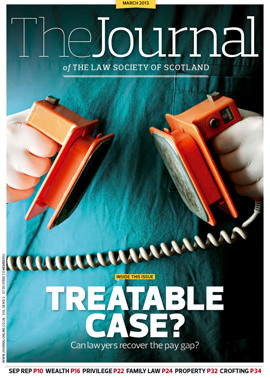The trouble with in-house lawyers

The in-house lawyer has become a mainstay of the head office support infrastructure. Their value is understood and appreciated in the context of legal risk management and some compliance activity.
However, the value of the in-house lawyer is less well developed in terms of a corporate advisory, policy development and business strategy role. Why is this? Why is the potential to make a strategic contribution less well understood and delivered? Why are in-house lawyers not routinely appointed to roles that help to lead growth and success for their organisations? And what needs to change for this to happen?
The quality of people is definitely not the issue. In the past decade especially, the overall standing of the in-house lawyer has risen. It is a credible career path for any lawyer and the talent pool is deeper and broader than ever before. The skills needed to be successful in business, however, are not good enough. This is a failing of leadership, and more generally of the way all lawyers are trained in business skills.
In this article, therefore, the intention is to provide a little tough love. We want lawyers to be able to fulfil their potential and to make the contribution they and their businesses should want them to make. To do so, however, most lawyers must change something; many have to change almost everything.
Wrong targets
So let’s begin by exploding a myth or two.
The phrase “trusted adviser” is a moribund cul-de-sac of conceit. It is a concept that panders to the vanity of lawyers who believe that simply by being present they will somehow excrete value. Their inner Delphic oracle will shine if their ego is polished just a little bit more.
Too many in-house legal teams are dark pits of inefficiency. Encouraged by faint praise, they institutionalise a long-hours culture to manage workload, spectacularly missing the point that their ineffectiveness at managing demand might also have a part to play. When the brown stuff is hitting the fan:
- first, turn off the fan
- second, insert a large bung
- third, clear up the brown stuff.
Instead, lawyers tend to opt for requisitioning bigger buckets.
The inability to manage workflow, often while persisting in the pursuit of creating even more demand, is another demonstration of cockeyed thinking. It is as if being “proactive” is an end in itself. Being proactive is about as useful an ambition as ordering steak when you have no teeth.
Many in-house teams have simply become inaccessible islands of worthy but strategy-less endeavour. The team never quite adds enough value to warrant investing in, but is never a big enough problem to scrutinise more closely: a sort of no-man’s-land function of uncertain worth, nestled somewhere in the mix with IT and facilities management.
Add in the fact that a great many of the in-house lawyer’s external relationships with law firm suppliers lack governance, rigour and accountability, and the picture is even less positive. Costs for outsourced work routinely overrun, while the basis for pricing many pieces of work is left to after-the-event judgments that in effect capitalise supplier ineffectiveness and client side inefficiency.
Self-delusion
Inevitably this has directly resulted in the increasing influence of procurement professionals. The in-house lawyer’s response, however, has laughably often been to complain how procurement professionals do not understand the legal market. Apparently, for many in-house lawyers, fixed-price certainty is worth sacrificing for the vagaries of hourly billing because, actually, the key to real value is to know the mobile number of the relationship partner should it be needed in the middle of the night. This is vanity dressed up as strategy, and operational sloppiness cloaked in feeble dark arts.
In-house teams are woefully lacking in process discipline and technology support, and many seem to treat any centre-driven efficiency initiative as a personal attack on their integrity, designed to undermine their intellectual autonomy.
In-house lawyers still deliver prodigious amounts of work and are full of admirable people doing great things, but far too much time is spent wallowing in the equivalent glory of a “diving one-handed catch” – and far too little is devoted to thoughtful “fielder placement” that would result in systematic, risk sensitive prioritisation, demand reduction, and better knowledge management.
Then there is the extraordinary lack of self-awareness as many in-house lawyers plead to be part of the fabric of corporate family life, but at the same time seek to renegotiate the allocation of office chores. As Oscar Wilde might have said, it is as if budgets are for people who have predictable lives, and objectives are for people who lack imagination. The lawyer must be free to roam the corporate prairie with the other thundering big beasts, untethered by trifles.
However, the lawyer is, frankly, just as deluded when it comes to their own career management. We fully expect in-house lawyers to move roles every three to five years. Each role contributes to the narrative of a successful career journey (or should do), and must exhibit skills development, new experiences and articulate contribution. Yet so many lawyers embark on haphazard networking, write deathly dull CVs, and seem to hold to an institutional arrogance that asserts how time served correlates exactly to a bigger and more valuable contribution. Descartes’ “I think, therefore I am” is corrupted to become dullard’s “I think, therefore I am worth more”.
Reinvent yourselves
In-house lawyers need to get over themselves, be present in their roles, seize their moment and build a contribution that has hard edges, clear purpose and adds obvious value to the strategic objectives of the businesses and institutions they work for.
In further articles I will explore what this means, with practical examples to build a meaningful personal development and legal services delivery strategy.
In this issue
- Remember, remember?
- Equal justice for all?
- Compatibility: devolution issues reborn
- Profiting from the past
- RTI for PAYE - are you ready?
- Reading for pleasure
- A modest proposal – civil marriage ceremonies for all
- Opinion column: Alistair Dean
- Book reviews
- Profile
- President's column
- Fee review: as you were
- Time to draw a line?
- The pay gap: seeking a cure
- Wealth management: Personal injury trusts - how to best invest
- Wealth management: Discretion - the model of choice
- Wealth management: Inheritance tax - discounts up front
- Wealth management: Pensions - time to look ahead
- Whose privilege is it, anyway?
- FLAGS unfurled
- Percentage game
- Rent, rent and rent again
- Sport, rights, and the internet
- An innocent mistake?
- Scottish Solicitors' Discipline Tribunal
- The trouble with in-house lawyers
- Lease of life for the High Street?
- PSG update
- Vacant and ready
- ABS in waiting
- Better ways: where to start?
- Keeping errors in check
- Ask Ash
- How not to win business: a guide for professionals
- What does a speculative fee allow?
- Law reform roundup






